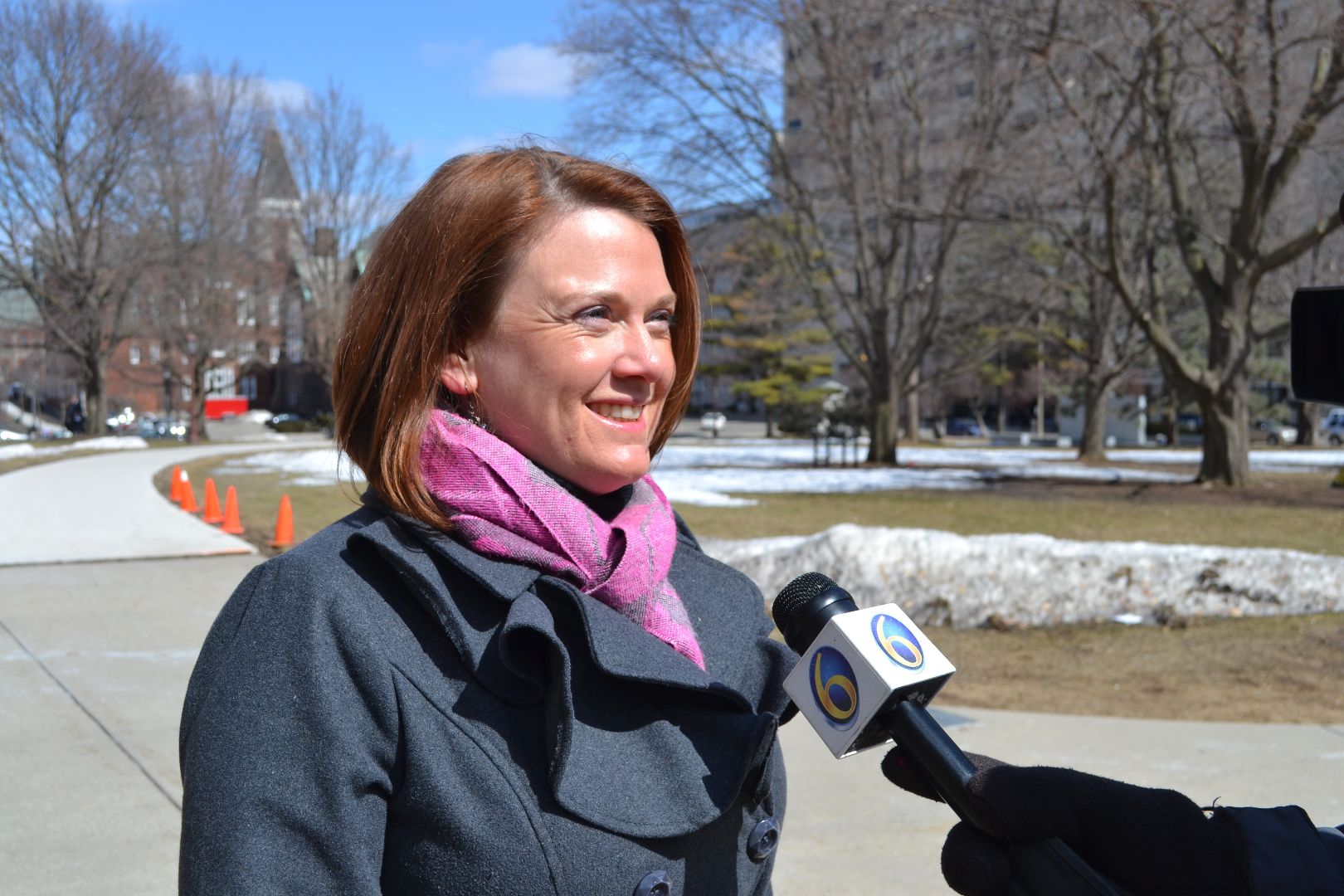
Environmental advocacy and justice have been passions of Rebecca Mueninck’s for as long as she can recall. During her undergraduate career at the University of Michigan, where she studied anthropology and environmental justice, Rebecca worked for several non-profits on environmental health and justice campaigns. After graduating from U of M and working full-time at the Ecology Center, Inc. for two years, she decided to pursue graduate studies at Michigan State University.

MSU was her top-choice due to the available programs in environmental science and agriculture, as well as the top-rated applied anthropology program. “From my early advocacy career I knew that I didn’t just want to be the kind of anthropologist who focuses primarily on theoretical issues, but instead I wanted to fully engage in the communities where I worked and be able to advocate alongside my research partners to help address the environmental and social problems that they identified,” said Rebecca.
During her first year at MSU, Rebecca learned of the Gender, Justice, and Environmental Change (GJEC) specialization from other grad students in the anthropology department that were enrolled in the specialization. Her classmates and her dissertation advisor, Laurie Medina, recommended the specialization because of her interest in the environment and justice. She decided to enroll in the GJEC specialization, as it was an opportunity to continue to hone her knowledge of environmental justice issues, while beginning to consider other factors, such as gender, in her dissertation research and future career. Her favorite class from the program was the second core course, Anthropology 859: GJEC Methods and Application. This course in particular helped her shape the questions for her dissertation research, which was focused on the impact of certification programs (e.g. fair trade, organic) on coffee farmers in Brazil.
“I had not thought as carefully about the gendered dynamics of coffee production and how those certification systems might differentially impact men and women farmers,” said Rebecca. “I used a feminist political ecology framework to look at the social, ecological, and economic impact of the system. By looking through a gendered lens I discovered that men and women farmers had very different, yet very critical roles to play in the production of dual certified high quality coffee and that unmarried women farmers and widows often faced more financial hardship in their coffee production because they did not always have as much help in coffee production as married couples or even single men who often had the help of their mothers or other female relatives to care for their coffee on the drying patio where coffee cherries (the fruit that the coffee bean is in) are dried in the sun via a process called ‘natural coffee processing.’”
Rebecca was also a recipient of the GJEC Dissertation Research Fellowship during the 2009-2010
academic year. The GJEC Fellowship allowed her to complete the US-based phase of her dissertation research with coffee buyers and certifiers here after returning from her fieldwork in Brazil with coffee farmers and their cooperatives.
While the GJEC program had a significant impact on Rebecca’s dissertation and career trajectory, she in turn had a great impact on the program. With the guidance of Anne Ferguson—former GenCen co-director—and Tracy Dobson, Rebecca developed GenCen’s internship program for both undergraduate and graduate students, and served as the first Internship Coordinator for GenCen. The internship program is still an integral part of the services that GenCen offers to its students.
After completing her field work in Brazil, Rebecca rejoined the Ecology Center, Inc., as an environmental health organizer, eventually moving up to campaign director. Today, Rebecca serves as the Deputy Director for the Center, a role she has filled since 2014. She also leads the work of the Toxics and Sustainable Food teams of the Ecology Center, Inc., as the Environmental Health Strategic Team Leader. She uses many of the concepts and skills learned in the GJEC program in her career. “I’m keenly aware that environmental problems like exposure to toxic chemicals and climate change have disproportionate impacts on different groups of people,” she stated. “Specifically, women often have higher rates of exposure to certain toxic chemicals in consumer products like cosmetics and cleaning products. I pay close attention to the types of products that have toxic chemicals and look into whether or not women, people of color, or low income people may have more exposure to these hazards.”